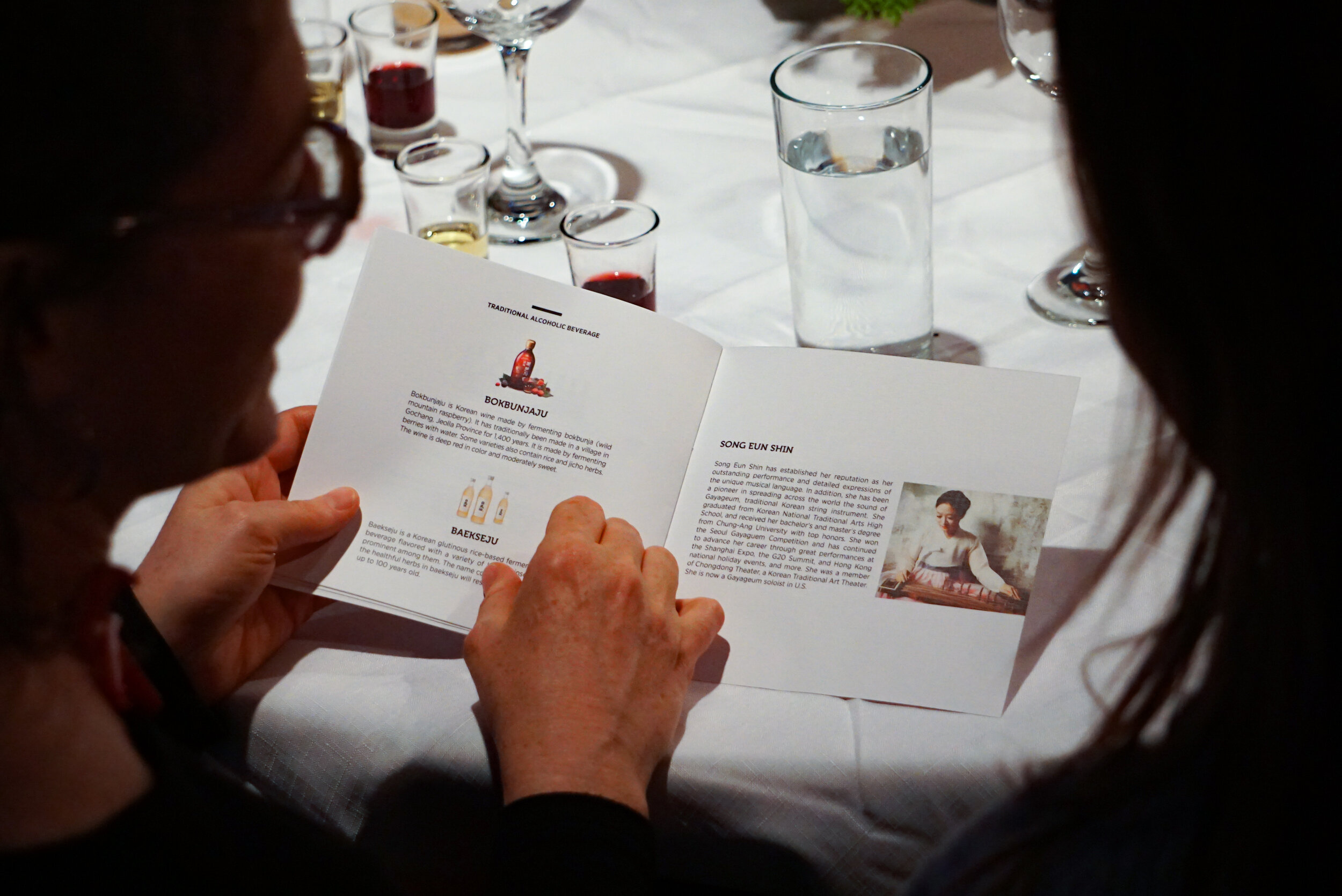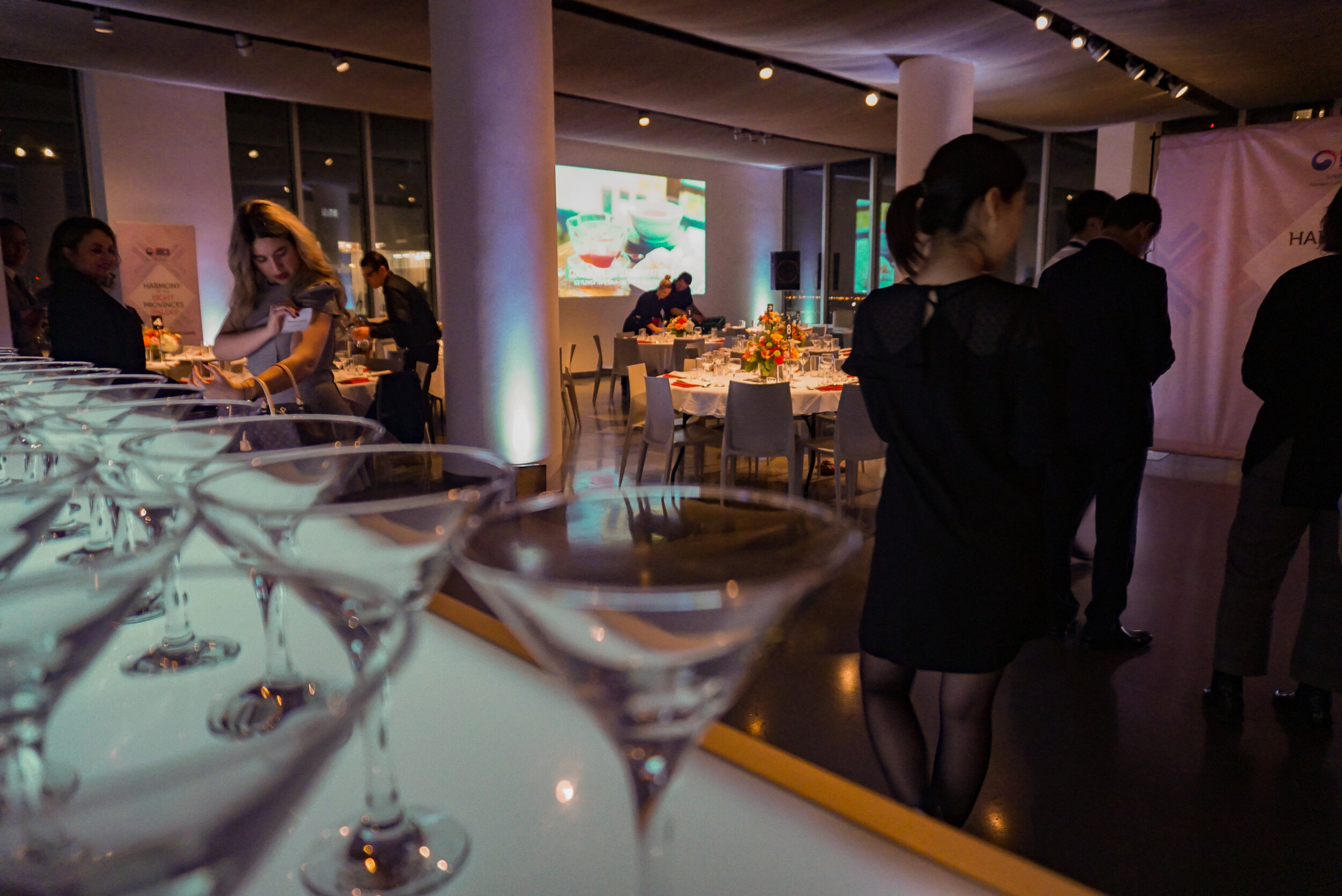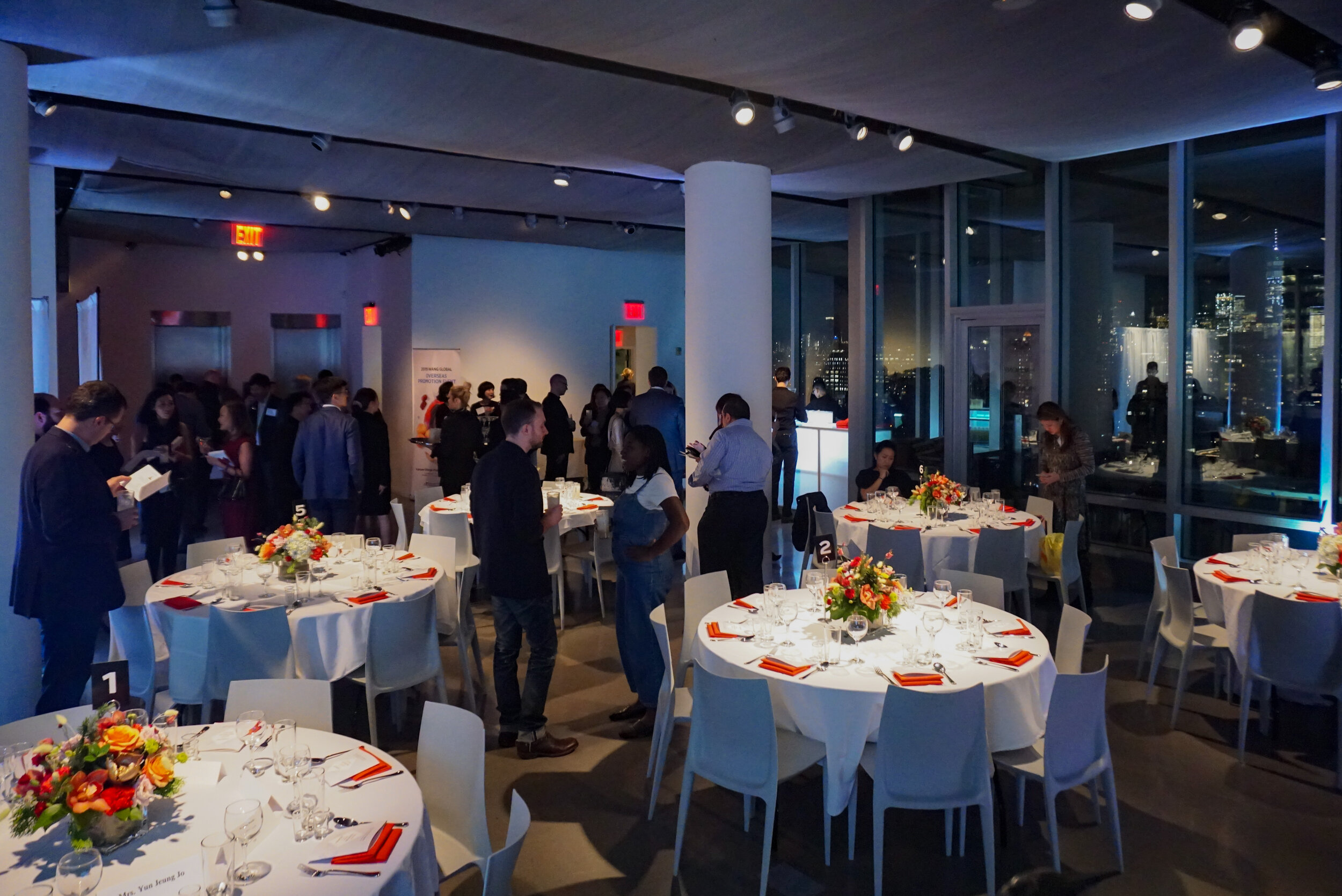Harmony of the Eight Provinces (Paldo): An Evening of Korean Cuisine
Tuesday, December 10th , 2019
Glass House Chelsea
(545 W 25th St, NYC)
* Co-presented by Korean Cultural Center New York and Korea Agro-Trade Center NewYork
Eight Provinces (Paldo) of Korea
During most of the Joseon Dynasty, Korea was divided into eight provinces. The eight provinces’ boundaries remained unchanged for about 480 years from 1413 to 1895, and formed a geographic paradigm that is still reflected today in the Korean Peninsula’s administrative divisions, dialects, and regional distinctions. The names of all eight provinces are still preserved today, in one form or another. These eight historical provinces form both North and South Korea, and are not to be confused with the current eight provinces that make up South Korea.
The Korean Cultural Center New York held a special cuisine event called “Harmony of the Eight Provinces (Paldo): An Evening of Korean Cuisine” to celebrate our 40th anniversary.
* Dishes
First Course
SAMGYETANG
(Ginseng Chicken Soup)
Samgyetang meaning ginseng chicken soup in Korean, consists primarily of a whole young chicken filled with garlic, rice, chestnut, jujube, and ginseng. Samgye-tang is a Korean
traditional soup believed to promote health. It is especially popular to eat this chicken soup on sambok days, which are three distinct days of the lunar calendar said to be the hottest and most sultry summer days in Korea.
Second Course
Youngduk Mulhoe & Baek-kimchi Mari
(Fluke crudo and noodle with white cabbage kimchi)
Fluke slivers over marinated noodles, white cabbage kimchi and chilled kimchi broth poured tableside. The broth is seasoned with hibiscus, which is the national flower of Korea. This dish is symbolic of the advent of the peace.
Third Course
Andong Godeungeo Jaban & Gosu Muchim
(Boiled spinach mackerel with cilantro salad)
Cured and charred Spanish mackerel brushed with coriander oil and spicy fresh coriander salad.
Fourth Course
Kkwong Mandu & Songro Beosut
(Phesant Dumplings)
Steamed pheasant dumplings with truffle sauce and shaved fresh winter black truffles from France.
Fifth Course
SAM HAP
Kongnamul Minari Kimchi, Jogye Muchim & Jokbal
Fermented beans sprouts and watercress kimchi, marinated clams, braised pigs trotters over bibb lettuce wrap. The guests should make their own wraps using chopsticks.
Sixth Course
Edong Galbi & Hyeju Bibimbap
(Charred beef short ribs over Bibimbap)
Charred BBQ beef short ribs cooked medium rare over mixed 17 grain rice which is barely, black beans, black rice, sweet rice, oats, quinoa, etc. Rice is mixed with rehydrated vegetables such as mushrooms, bellflower roots, and fiddlehead ferns. Hearty beef broth will be poured tableside.
Seventh Course
Baesuk
(Poached Korean pear)
Korean pear poached in omija and honey, omija and rosemary granita, soy-caramelized walnuts, and whipped creme fraiche.
* If you need more details of the event, please click the program book.
* Reception
In this event, we served a curated 7-course menu that highlight the distinct regional ingredients and colors of Korea’s eight regions.
CHEF Jae Jung
Chef Jae was born and raised in Seoul, Korea. In 2009, she came to New York to go to the Culinary Institute of America. After school, she moved down to New Orleans and fell in love with southern culture and spent 4 years of her life in cooking at Restaurant August, Dooky Chase, Domenica and Herb Saint. Jae traveled America and did 15 pop up events all over the country in Chicago, Miami, Austin, Boston, Nashville, New Orleans, New York, and Birmingham. One of her events was featured in the New York Times. She moved back to NYC in 2014 because she wanted a new challenge. She has been working at several Michelin starred restaurants such as Le Bernardin, Oceana, Café Boulud, and the Nomad Hotel.
February in 2017, she showcased a storytelling wine paring dinner series and was on CBS News, Food and Wine Magazine, Bon Appetit, and Eater. September in 2019, she was in cookbook “A Place at the Table” from Vilcek Foundation, and was featured in New York Magazine.




















